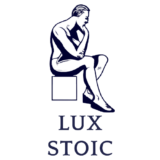“Trust the experts”. How often does one hear that statement or some variation from the intellectually lazy. It’s one of those statements that has a kind of ambient reasonableness at first blush. Of course upon further review the concept is grounded in the spurious assumption that there is such a thing as an ‘expert’. But is there? Really? On whose authority? Is there an ‘expert’ on expertise that makes these determinations? Is there a checklist? A certificate? Maybe a laminated badge with a colored coded lanyard?
One could plausibly suggest that expertise is the result of some secret handshake alchemy involving education and experience. Using the education axis as a sole determinate brings to mind the old question “what do you call the person who finishes last in their med school class? Answer: Doctor.
The experience axis is a little more complex. A thought experiment might shed some light.
Door #1 Married to the same person for 42 years
Door#2 Married to four different people for a grand total of 27 years
Door#3 Never been married but has been a marriage counselor for 33 years
Who is the expert? Or are they all experts? Or are none of them experts?
Some readers may be familiar with the standard list of logical fallacies. These are rhetorical falsehoods used to obscure reason in a legitimate debate. Invoking experts is a common logical fallacy known as “appeal to authority” which logicalfallacies.org defines as follows:
‘The fallacy of appeal to authority makes the argument that if one credible source believes something it must be true’
Applying this definition begins with a definition of ‘credible source’. As previously discussed, ‘expert’ is a purely subjective credential based on self identification or a non-expert designating someone else as an expert for the purpose of supporting their predetermined agenda.
Assuming for a moment that there is a credible source what evidence is there that a statement is true based solely on the characteristics of the source. The question becomes if one can’t count on experts (real or imagined) what is the alternative? The answer is simple. A combination of evidence and critical thinking. How would those tools be applied in practice? Another thought experiment is in order. What if one were to select a group of ordinary people (non-experts), present them with credible evidence and have them apply the precepts of critical thinking in a deliberative process and render a decision.
Of course clever readers will recognize this as the jury system the framers of the U. S. Constitution adapted from English common law, which has been rigorously stress tested over time.
We’ve established that experts are mythical entities wholly unnecessary to any logic based critical thinking processes yet some people persist in the belief that experts exist and are useful in the problem solving process, so for the purposes of this next exercise we’ll suspend disbelief and proceed as if experts do exist. If that is the case these are the things that would be true about experts:
–Experts can be wrong. Nobody is right about everything all the time. Even if one fancies oneself as an expert it doesn’t follow that one is correct about the specific subject at hand.
–A corollary to the above is that people can change their minds . Data sets are never complete. One of the foundations of critical thinking is that new or revised data should trigger a reassessment of previous conclusions (Seriously, is Pluto a planet or not?)
–People lie. There is no evidence that expertise (regardless of definition) is in any way correlated with honesty or even accuracy.
–Sources and Uses. People, statements, organizations and everything else under creation should always undergo a sources and uses analysis. There is no way to establish credibility or accuracy without knowing where the resources come from and what they are going to be used for.
The above list, while not exhaustive, describes some of the many reasons that appeal to authority is a logical fallacy.
As always in use of the media as a credible authority needs to be filtered through the immutable media business model As follows:
The media company makes words and pictures.
The company uses the words and pictures to draw a crowd.
The crowd is rented to advertisers.
Imaginary experts are simply enhanced marketing tools used to draw a bigger crowd. Stick with credible evidence and critical thinking.
